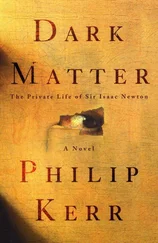Philip Kerr - A Man Without Breath
Здесь есть возможность читать онлайн «Philip Kerr - A Man Without Breath» весь текст электронной книги совершенно бесплатно (целиком полную версию без сокращений). В некоторых случаях можно слушать аудио, скачать через торрент в формате fb2 и присутствует краткое содержание. Год выпуска: 2013, Издательство: Quercus, Жанр: Триллер, на английском языке. Описание произведения, (предисловие) а так же отзывы посетителей доступны на портале библиотеки ЛибКат.
- Название:A Man Without Breath
- Автор:
- Издательство:Quercus
- Жанр:
- Год:2013
- ISBN:нет данных
- Рейтинг книги:4 / 5. Голосов: 1
-
Избранное:Добавить в избранное
- Отзывы:
-
Ваша оценка:
- 80
- 1
- 2
- 3
- 4
- 5
A Man Without Breath: краткое содержание, описание и аннотация
Предлагаем к чтению аннотацию, описание, краткое содержание или предисловие (зависит от того, что написал сам автор книги «A Man Without Breath»). Если вы не нашли необходимую информацию о книге — напишите в комментариях, мы постараемся отыскать её.
A Man Without Breath — читать онлайн бесплатно полную книгу (весь текст) целиком
Ниже представлен текст книги, разбитый по страницам. Система сохранения места последней прочитанной страницы, позволяет с удобством читать онлайн бесплатно книгу «A Man Without Breath», без необходимости каждый раз заново искать на чём Вы остановились. Поставьте закладку, и сможете в любой момент перейти на страницу, на которой закончили чтение.
Интервал:
Закладка:
I shrugged. ‘In view of the events of last night I imagine he has a lot to talk about,’ I said.
‘Yes sir.’
Rex was quiet, for which I was grateful and which I attributed to the loss of his two comrades. I didn’t mention them. That was someone else’s problem now. All I cared about was getting on the plane back to Berlin before something else happened to keep me in Smolensk. I certainly wouldn’t have put it past Colonel Ahrens to speak to Field Marshal von Kluge and have my departure delayed long enough for me to investigate the murders. And Von Kluge could do it. I might have been SD, but I was still attached to the War Crimes Bureau, and that meant I was under army orders.
A short way past the railway station, we turned north onto Lazarettstrasse to find a small crowd gathered on a patch of waste ground on the corner of Grosse Lermontowstrasse. Suddenly I felt sick to my stomach, as if I had swallowed poison.
‘Stop the car,’ I told Rex.
‘It might be best if we don’t, sir,’ said Rex. ‘We’ve no escort and if that crowd turns ugly, it’ll be just you and me.’
‘Stop the fucking car, lieutenant.’
I got out of the bucket wagon, unbuttoned my holster, and walked toward the crowd, which parted in sullen silence to admit my passage. Horror does not need the dark, and sometimes a truly evil deed shuns the shadows. A makeshift gallows had been erected like so many tent poles from which six dead bodies were now hanging, five of them young men and all of them obviously Russian from their clothes. The men were still wearing their peasant-style caps. Around the neck of the central figure – a young woman who was wearing a headscarf, and missing one shoe – was a placard written in German and then Russian: WE ARE PARTISANS AND LAST NIGHT WE MURDERED TWO GERMAN SOLDIERS. None of them had been dead for very long – a pool of urine underneath one of the corpses that was turning in the wind had yet to freeze. It was one of the saddest sights I’d ever seen, and I felt a strong sense of shame – the same kind of shame I felt the first time I came to Russia and witnessed what happened to the Jews in Minsk.
‘Why did they do it? Last night I made it perfectly clear to everyone that it wasn’t partisans who murdered those men. I distinctly told your colonel. And I told Lieutenant Voss. I am certain they both understood that Ribe and Greiss were murdered by a German soldier. All of the available evidence points that way.’
‘Yes sir, I heard what happened.’
‘I meant all of it, too. Without exception.’
Lieutenant Rex backed towards me as if he didn’t want to take his eyes off the crowd, but to be fair it might just as easily have been that he didn’t want to look at the six people hanging from a beech-log gibbet.
‘I can assure you that this execution wasn’t anything to do with the colonel or the field police,’ explained Rex.
‘No?’
‘No, sir.’
‘Well at least now I understand why your colonel didn’t want to accompany me to the airport himself. That was clever of him. He could hardly have avoided seeing this, could he?’
‘He wasn’t happy about it, sir, but what could he do? This is down to the local Gestapo. It’s them who carry out executions in Smolensk, not the army. And in spite of what you said just now – that it was a German soldier who murdered Ribe and Greiss – I believe they still thought it was necessary to make a point to the people of Smolensk that the murders of Germans will not go unpunished. At least that was the colonel’s information.’
‘Even if innocent people are punished,’ I said.
‘Oh, these people weren’t innocent,’ said Rex. ‘Not exactly anyway. I believe they were already being held in the Kiewerstrasse prison, for one thing or another. Black marketeers and thieves probably. We get a lot of them in Smolensk.’ Rex had drawn his pistol and was holding it stiffly at his side. ‘Now if you don’t mind, we really ought to get out of here before they string us up beside these others.’
‘You know, I should have realized something like this might happen,’ I said. ‘I should have gone to Gestapo headquarters last night and told them myself. Made an official report. They would have listened to the little fucking skull and crossbones on my hat.’
‘Sir. We ought to go.’
‘Yes. Yes of course.’ I sighed. ‘Take me to the airport. The sooner I get out of this hellhole the better.’
Looking more than a little relieved, Rex followed me back to the car, and suddenly he was full of talk that was mostly explanation and evasion of the kind I’d often heard before and would doubtless hear again.
‘No one likes to see that sort of thing,’ he said, as we drove north up Flugplatzstrasse. ‘Public executions. Least of all me. I’m just a lieutenant of signals. I worked for Siemens in Berlin before the war, you know. Installing telephones in people’s houses. Fortunately I don’t have to get involved with that side of it. You know – police actions. So far I’ve got through this war without shooting anyone, and with any luck, that’s not going to change. Frankly I could no more hang a bunch of civilians than I could play a Schubert impromptu. If you ask me, sir, the Ivans are decent salt-of-the-earth fellows just trying to feed themselves and their families, most of them. But try telling that to the Gestapo. With them everything is ideological – all Ivans are Bolsheviks and commissars and there’s never any room for compromise. It’s always “Let’s make an example of someone to deter the rest”, you know? If it wasn’t for them and the SS – what happened over at the ghetto in Vitebsk was quite unnecessary – well, really Smolensk is not such a bad place at all.’
‘And there’s even a fine cathedral. Yes, you mentioned it before. I just don’t think I know what a cathedral is for, lieutenant. Not anymore.’
*
It’s hard to feel good about your homeland when so many of your fellow countrymen behave with such callous brutality. Leaving Smolensk far below and behind me, my heart and mind felt as severely jolted by the sight of those six hanged men and women as the plane soon was by pockets of warmer air that the pilot called ‘turbulence’. This was so heart-stoppingly severe that two of the plane’s other passengers – a colonel from the Abwehr named Von Gersdorff, who was one of the aristocrats that had met Von Dohnanyi at Smolensk airport the previous Wednesday, and an SS major – were swiftly crossing themselves and praying out loud; I wondered how much good a prayer in German could be. For a while the two officers’ prayers provided a source of some small sadistic pleasure to me. They were a satisfactory hint there might be some justice in an unjust world, and the way I was feeling I would hardly have cared if our plane had met with a catastrophic accident.
Perhaps it was the vigorous shaking of the plane we endured for over an hour that banged something loose in my head. I had been thinking about Captain Max Schottlander, who was the Polish author of the military intelligence report – for this was what it was – I had found inside his frozen boot, and which Doctor Batov had translated for me. Suddenly, as if the lurching movement of the plane had brought part of my brain to life, I wondered what effect might be achieved if ever I was to disclose the report’s contents – although to whom these contents might be disclosed was hard to answer. For a moment a number of ideas as to just what could be done crowded my brain all at once; but finding no more than a fleeting thought attached to each, these ideas seemed to vanish simultaneously, as if a warmer, more hospitable mind than my own had been required to give them all a chance to thrive, like so many of Colonel Ahrens’s bees.
Читать дальшеИнтервал:
Закладка:
Похожие книги на «A Man Without Breath»
Представляем Вашему вниманию похожие книги на «A Man Without Breath» списком для выбора. Мы отобрали схожую по названию и смыслу литературу в надежде предоставить читателям больше вариантов отыскать новые, интересные, ещё непрочитанные произведения.
Обсуждение, отзывы о книге «A Man Without Breath» и просто собственные мнения читателей. Оставьте ваши комментарии, напишите, что Вы думаете о произведении, его смысле или главных героях. Укажите что конкретно понравилось, а что нет, и почему Вы так считаете.












